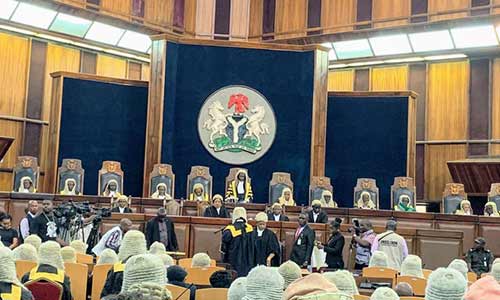In a historic ruling, the Supreme Court of Nigeria has granted financial autonomy to the country’s 774 Local Government Areas (LGAs). This landmark decision marks a profound shift in the administration of local governments, ending the long-standing control of state governors over local government funds and the contentious practice of appointing caretaker committees.
Key Rulings Explained:
- End to Caretaker Committees: The Supreme Court unequivocally declared the appointment of caretaker committees by state governors as unconstitutional. This ruling emphasizes that only democratically elected local government officials are legitimate. The practice of state governors dissolving elected local government bodies and replacing them with caretaker committees has been deemed illegal, reinforcing the constitutional mandate for democratic governance at the local level.
- Direct Fund Allocation: The court mandated that funds allocated to local governments from the Federation Account must be paid directly to the LGAs, bypassing state governors. This decision is intended to ensure that local governments have direct and unhindered access to their funds. By removing state-level intermediaries, the ruling aims to enhance transparency, accountability, and efficiency in the management of local government finances.
- Unconstitutional Fund Retention: The Supreme Court found that the practice of state governors receiving, retaining, or spending local government allocations is a violation of the 1999 Constitution. The court highlighted that the constitution requires the distribution of funds to all three tiers of government—federal, state, and local—without interference. This aspect of the ruling underscores the autonomy and financial independence of local governments.
Implications for Local Governance:
This ruling is expected to have far-reaching implications for local governance in Nigeria. By ensuring that funds reach local governments directly, the judgment aims to improve the delivery of essential services and infrastructure at the grassroots level. Local governments, now financially autonomous, will be better positioned to manage their resources, execute projects, and address local issues effectively. Additionally, this financial independence will enable citizens to hold their local government officials accountable, fostering a more transparent and responsive governance system.
Reactions from Political Leaders and Organizations:
The Supreme Court’s decision has elicited a spectrum of reactions from political leaders and organizations:
- Positive Reactions:
- President Bola Tinubu welcomed the judgment, stating that it affirms the constitutional rights of local governments and is crucial for effective governance. He emphasized that the decision would ensure better service delivery and accountability at the local level.
- Former Vice President Atiku Abubakar praised the ruling, describing it as a significant step towards improving governance and democracy. He highlighted that it represents a victory for the Nigerian people.
- National Union of Local Government Employees (NULGE) and the Socio-Economic Rights and Accountability Project (SERAP) also lauded the ruling. They urged state governors to comply with the judgment and return any withheld local government funds.
- Criticism:
- Former Delta State Governor James Ibori criticized the ruling, arguing that it undermines the principles of federalism. He called for a review of the judgment to address his concerns, suggesting that it might disrupt the balance of power between state and local governments.
Future Considerations:
The Supreme Court’s decision is set to halt the allocation of funds to local governments currently administered by caretaker committees. States like Rivers, Ondo, Osun, and Plateau, where caretaker committees are in place, will be directly impacted. This ruling also raises questions about the future of Local Council Development Areas (LCDAs) created by some states. Since the constitution only recognizes 774 local governments, governors who wish to maintain these LCDAs will need to find alternative means to sustain them financially.
Conclusion:
The Supreme Court’s judgment granting financial autonomy to local governments is a historic step toward strengthening local governance in Nigeria. By ensuring that funds are allocated directly to LGAs, the ruling is expected to enhance transparency, accountability, and the effective delivery of services at the grassroots level. As Nigeria moves forward, it will be crucial for all stakeholders to comply with the ruling and work towards the betterment of local governance. This decision signifies a new era for local governments, promising more robust and democratic administration across the country.



























































